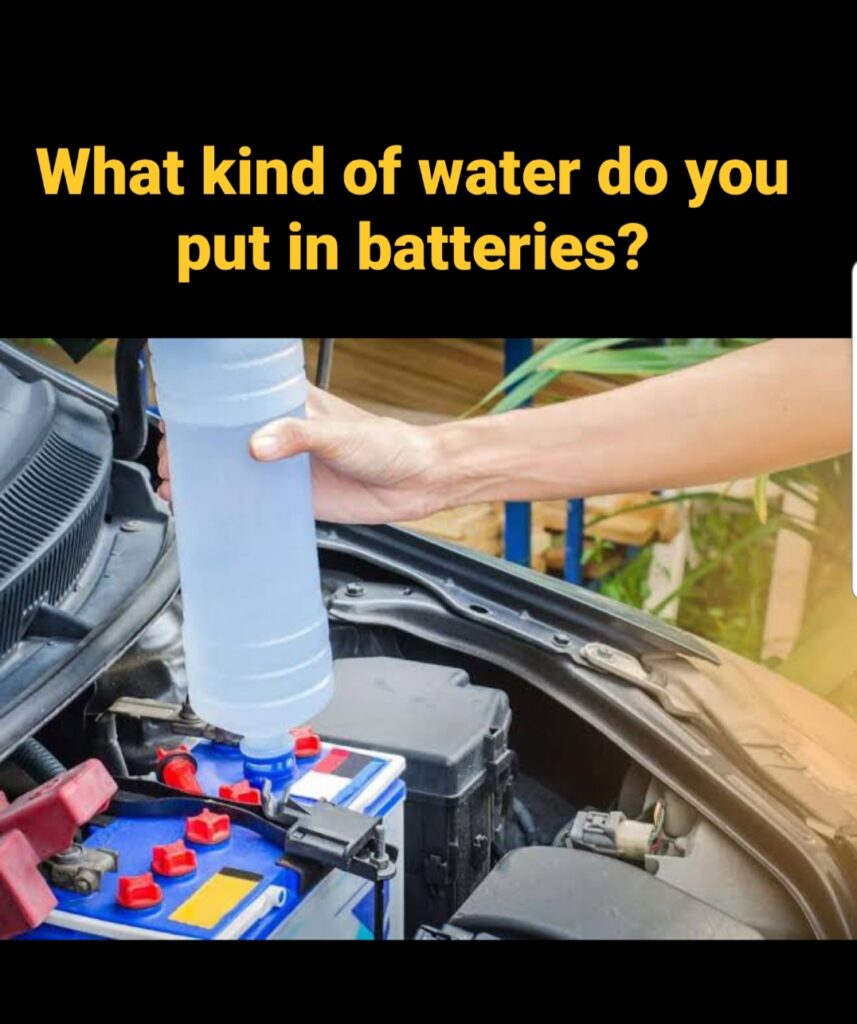What kind of water do you put in batteries?
Answer:
For most batteries, you should use distilled water. It’s free from impurities that could interfere with the battery’s performance. However, not all batteries require water; some are sealed and maintenance-free. Always check the manufacturer’s instructions before adding water to any battery.
Reasoning:
Distilled water is recommended for use in batteries due to its purity. When water is distilled, it is heated to a vapor and then condensed back into a liquid, leaving behind any impurities, minerals, or contaminants. This process ensures that the water is free from any dissolved substances that could potentially interfere with the chemical reactions inside the battery.
Using regular tap water or other non-distilled water sources may introduce impurities that could lead to mineral buildup and reduce the battery’s performance and lifespan. Mineral deposits could cause electrical shorts, decrease the battery’s capacity, and increase the risk of corrosion. Distilled water helps maintain the proper chemical balance within the battery, ensuring optimal functionality and prolonging its life.
It’s essential to adhere to the manufacturer’s guidelines and use the recommended type of water to maintain the battery’s performance and safety.
FAQs
What is distilled water, and why is it used in batteries?
Distilled water is water that has been purified through the process of distillation, removing impurities. It’s used in batteries to prevent mineral buildup and ensure optimal chemical reactions.
Can I use tap water instead of distilled water in my battery?
It’s not recommended. Tap water may contain minerals and impurities that could damage the battery, affecting its performance and lifespan.
How often should I check and add water to my battery?
For non-sealed lead-acid batteries, check water levels monthly and add distilled water as needed to maintain proper levels.
What happens if I overfill my battery with water?
Overfilling the battery can lead to electrolyte leakage, which may cause corrosion and reduce battery efficiency. Always follow the manufacturer’s guidelines for filling levels.
Are all batteries refillable with water?
No, some batteries are sealed and maintenance-free. They are designed to be operated without the need for adding water during their lifespan.
How can I dispose of old battery water?
Used battery water may contain hazardous materials. Properly dispose of it at a recycling or disposal center following local regulations.
Can I use distilled water from a store-bought bottle for my battery?
Yes, commercially available distilled water is suitable for use in batteries, ensuring its purity and proper functioning.
What other battery maintenance steps should I follow to prolong its life?
Keep terminals clean, charge the battery appropriately, and store it in a cool, dry place. Regular maintenance and proper usage contribute to a longer battery lifespan.
 Electrical Engineering World Wiring a Brighter Tomorrow!
Electrical Engineering World Wiring a Brighter Tomorrow!
